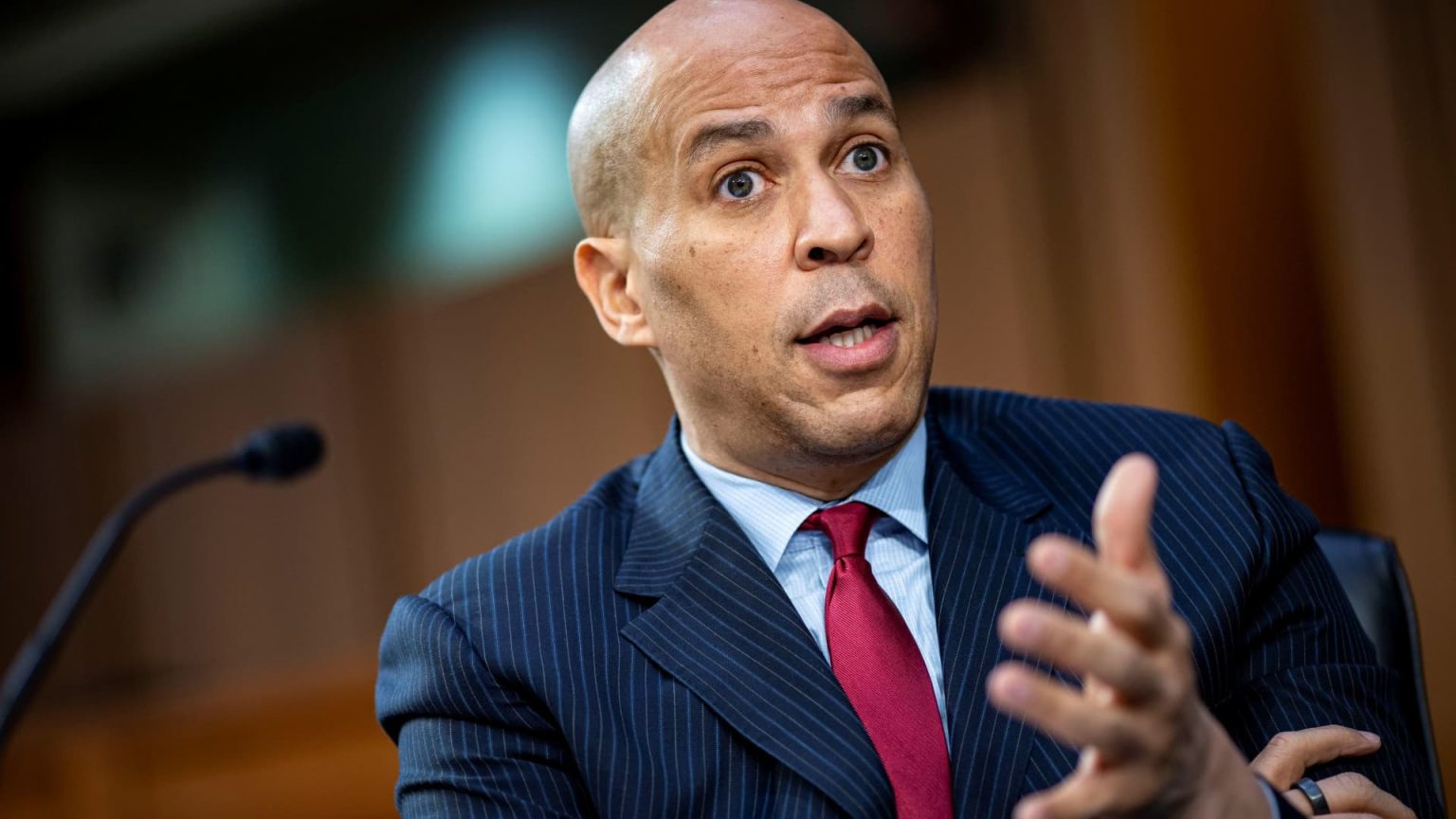In a recent television interview, Senator Cory Booker (D-NJ) advocated for congressional hearings regarding potential insider trading related to President Donald Trump‘s economic decisions. This call comes after Trump encouraged the public to invest in stocks, only to later reverse his tariff policy amidst market fluctuations. The urgency for inquiry was emphasized by Booker, who stressed the importance of maintaining trust in government oversight and accountability in financial matters.
| Article Subheadings |
|---|
| 1) Senator Booker’s Call for Congressional Hearings |
| 2) Accusations of Insider Trading and Market Manipulation |
| 3) Responses from the White House and Political Analysts |
| 4) The Political Landscape and Booker’s Future Plans |
| 5) Implications for Congressional Oversight |
Senator Booker’s Call for Congressional Hearings
In a recent interview on NBC News’ “Meet the Press,” Senator Cory Booker articulated his demand for congressional hearings to investigate possible insider trading linked to President Donald Trump‘s recent economic statements. On February 22, during a segment of the show, Booker highlighted the need for transparency surrounding stock purchase suggestions made in light of Trump’s shifting tariff policies. He emphasized that the evidence of potential wrongdoing warranted thorough congressional oversight, stating,
“Not to have hearings, not to do any kind of oversight undermines the faith we have in our government.”
Accusations of Insider Trading and Market Manipulation
The allegations stem from a series of events initiated by President Trump on February 21, when he tweeted about stock buying opportunities just before announcing significant changes to his tariff policies. After initially imposing steep tariffs that resulted in a downturn in the stock market, Trump reversed these measures just hours later, leading to a notable rise in stock values. This abrupt shift caused Democratic lawmakers to question whether there was any insider trading involved. Cory Booker, responding to these allegations, expressed the need for an inquiry, asserting that the correlation between Trump’s comments and the market movements raised legitimate concerns. However, it is worth noting that Democrats have yet to produce solid evidence showing that Trump or his allies profited from insider information, casting a shadow over the claims being made.
Responses from the White House and Political Analysts
In light of the accusations, a spokesperson for the White House, Kush Desai, strongly rejected the notion that Trump’s remarks constituted market manipulation. In a formal statement, Desai defended the President, stating,
“It is the responsibility of the President of the United States to reassure the markets and Americans about their economic security.”
This defensive stance suggests that the White House is attempting to mitigate damage to its credibility while asserting the President’s intention to act in the economic interests of the nation. Political analysts view the situation as an intersection between economic policy and political maneuvering, suggesting that the ongoing discourse may influence upcoming elections and legislative actions.
The Political Landscape and Booker’s Future Plans
While addressing the allegations pertaining to insider trading, Senator Booker also responded to questions regarding his future political ambitions. He hinted that he is not ruling out a presidential run in 2028, which reignited speculation due to his previous bid in 2020. In response to inquiries, he expressed a focus on his current re-election campaign in 2026. He stated,
“I’m focused on today and my re-election in ’26.”
This dual focus showcases the ever-evolving nature of political aspirations and the importance of strategic positioning in the current climate.
Implications for Congressional Oversight
The prospect of congressional hearings, as suggested by Booker, raises important questions about the role of Congress in overseeing financial markets and government actions. As scrutiny rises on the interplay between political decisions and market reactions, the demand for greater transparency becomes more pressing. A potential investigation could set a precedent for how similar situations are handled in the future. Moreover, the actions taken by Congress now could significantly influence public trust in governmental institutions and the regulatory frameworks around market activities.
| No. | Key Points |
|---|---|
| 1 | Senator Cory Booker called for congressional hearings on potential insider trading involving President Trump’s tariff policy. |
| 2 | The controversy arose from Trump’s comments suggesting stock purchases before a reversal of tariffs that improved market conditions. |
| 3 | The White House denied allegations of market manipulation, framing Trump’s statements as reassurance to the American public. |
| 4 | Booker indicated he may consider a presidential run in 2028 while focusing on his re-election for Senate in 2026. |
| 5 | The call for hearings reflects growing concerns about the integrity of financial markets and the need for robust congressional oversight. |
Summary
The recent statements made by Senator Cory Booker emphasize the increasing scrutiny surrounding President Trump’s economic policies and their implications for insider trading. As Democrats raise concerns about potential market manipulation, the demand for congressional hearings illustrates the intersection of finance and governance in contemporary politics. These developments will likely influence public trust in governmental oversight while shaping the narratives leading into future elections.
Frequently Asked Questions
Question: What prompted Senator Booker to call for congressional hearings?
Senator Booker called for hearings in light of President Trump’s suggestions to buy stocks before reversing tariff policies, which raised concerns about potential insider trading and market manipulation.
Question: What are the main accusations against President Trump regarding insider trading?
The accusations center around Trump’s tweet encouraging stock purchases just before a significant reversal in his tariff policy, which allegedly created a favorable condition for stock profits.
Question: How has the White House responded to the allegations of market manipulation?
The White House spokesperson denied the allegations, asserting that the President’s comments were intended to reassure the public and maintain economic stability, not to manipulate market conditions.


